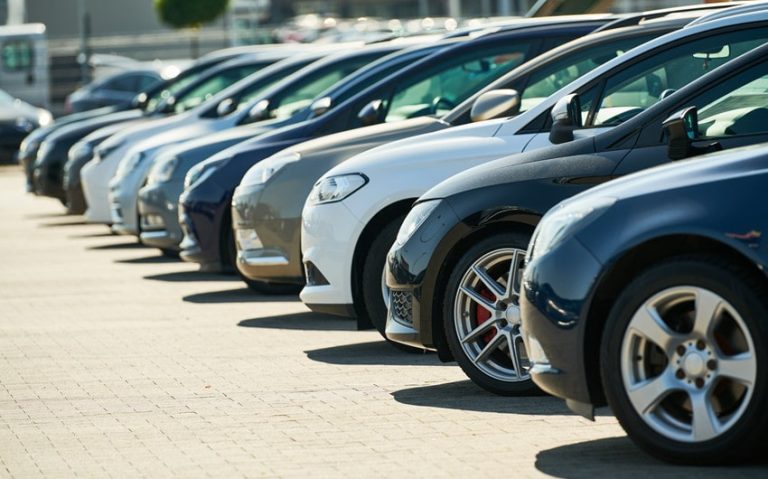When shopping for a used car, one of the most critical aspects to consider is its history. A vehicle’s past can reveal essential details about its condition, reliability, and value. One of the significant factors that can appear in a vehicle history report is whether the car has been involved in an accident. But does it really matter if a car’s history shows an accident?
Understanding Vehicle History Reports
A vehicle history report is a comprehensive document that provides detailed information about a car’s past. These reports typically include data on previous ownership, service and maintenance records, title status, and any reported accidents. Vehicle history reports are crucial for buyers to make informed decisions, as they can highlight potential red flags that may affect the car’s value and safety.
How to Obtain a Vehicle History Report
Obtaining a vehicle history report is straightforward. Several reputable sources, such as Carfax and AutoCheck, offer these reports for a fee. All you need is the car’s Vehicle Identification Number (VIN), which is usually found on the dashboard, driver’s side door, or vehicle registration documents. Enter the VIN on the provider’s website, and you can access the car’s complete history. Dealerships will often be able to provide a report for free as well on used cars.
Impact of an Accident on a Car’s Value
Depreciation
An accident can significantly affect a car’s resale value. Vehicles with accident histories generally depreciate faster than those with clean records. This depreciation is more pronounced if the accident caused substantial damage. Even if the car has been repaired, potential buyers may be wary, leading to lower market demand and reduced prices.
Perceived Value
Buyer perceptions play a crucial role in determining a car’s value. Many buyers are cautious about purchasing a vehicle that has been in an accident, fearing hidden issues or compromised safety. This perception can make it challenging to sell the car in the future, further decreasing its market value.
Assessing the Severity of the Accident
Minor vs. Major Accidents
Not all accidents impact a car equally. Minor accidents, such as fender benders, typically involve cosmetic damage that does not affect the vehicle’s structural integrity or safety. Major accidents, on the other hand, can cause significant damage to the car’s frame, engine, and other critical components. Understanding the severity of the accident is essential when evaluating the vehicle.
Extent of Repairs
The quality and extent of repairs are also crucial. Cosmetic repairs are usually less concerning, but structural repairs require careful scrutiny. Vehicles repaired by reputable shops with high standards are generally more reliable than those with subpar repairs. Ensure you review the repair records and, if possible, have the vehicle inspected by a trusted mechanic.
Mechanical and Safety Considerations
Potential Hidden Issues
Accidents can cause hidden issues that may not be immediately apparent. Problems such as misalignment, electrical system malfunctions, or suspension damage can arise even after repairs. A personal injury attorney in Lebanon relayed that not being aware of these problems can potentially cause another car accident to happen. It is vital to conduct a thorough inspection and test drive to identify any underlying problems that could affect the car’s performance and reliability.
Safety Concerns
Safety should be a top priority when considering a car with an accident history. An accident can compromise the vehicle’s safety features, such as airbags, crumple zones, and electronic stability control. Ensure that all safety features have been restored to their original condition and that the repairs meet safety standards.
Insurance and Financing Implications
Insurance Premiums
Cars with accident histories may attract higher insurance premiums. Insurance companies consider these vehicles higher risk due to their potential for future problems. It is advisable to get insurance quotes before purchasing a car with an accident history to understand the financial impact.
Financing Challenges
Securing financing for a car with an accident history can be more challenging. Lenders may view these vehicles as higher risk, leading to stricter loan terms or higher interest rates. Ensure you discuss the vehicle’s history with potential lenders and understand how it might affect your financing options.
Making an Informed Decision
Professional Inspections
Before purchasing a car with an accident history, have it inspected by a trusted mechanic. A professional inspection can reveal hidden issues and provide an unbiased assessment of the car’s condition. This step is crucial in ensuring that you are making a sound investment.
Negotiating Price
Use the vehicle history report to negotiate a fair price. The presence of an accident history can be a strong bargaining point. Research the market value of similar cars with and without accident histories to determine a reasonable offer. Be prepared to walk away if the seller is unwilling to negotiate based on the car’s past.
Benefits of Buying a Car with an Accident History
Cost Savings
One potential benefit of buying a car with an accident history is cost savings. These cars are often priced lower than similar models with clean records. If the damage was minor and properly repaired, you could get a great deal on a reliable vehicle.
Finding Quality Repairs
Buying from reputable sellers who provide full disclosure and high-quality repairs can also be advantageous. Look for certifications and guarantees from recognized repair shops. Vehicles that have been thoroughly inspected and repaired by certified professionals can offer peace of mind despite their accident history.







